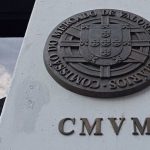Portugal votes for continuity and stability – Far right becomes third main party
The Portuguese went to the polls on Sunday and delivered a surprising majority win to the incumbent Socialist Party government led by António Costa.
The controversial outlying far right, anti-corruption party Chega led by André Ventura has now become the third biggest party in the country after winning 12 parliamentary seats in Portugal’s Republic Assembly, up from just 1 in the previous parliament.
Ventura, who is populist, pro-family, and had made controversial statements about Portugal’s gipsy community in the past, warned António Costa “I’m going after you” after his surprise gains from both the far left Bloco de Esquerda and conservative CDS-PP party which has all but disappeared from the political stage, losing relevance.
The Portuguese Communist Party, led by Jerónimo Sousa and the Left Bloc (Bloco de Esquerda) headed by Catarina Martins suffered a crushing setback in the polls after what seems to be a punishment for having been responsible for rejecting Portugal’s State Budget 2022 – the first to fall in the country’s democratic history, and which triggered the elections in the first place.
Reacting to defeat, the main opposition centre-right PSD party’s leader Rui Rio said he didn’t know “how he could be useful” leading the party through another four years in the wilderness.
António Costa’s previous minority government had been running the country with its allies from the far left, nicknamed the ‘jalopy’ (geringonça) because it was such an unlikely and rickety partnership. However, the partnership broke down over the issue of increases in pay and overtime hours and pay.
António Costa’s government took the credit for turning around the economy after the Great Recession of 2007-2014 thanks to the prudent financial account keeping from the then finance minister, Mário Centeno, while also ending the austerity of the previous centre-right PSD government led by Pedro Passos Coelho, and leading his party away from the legacy of the corrupt José Sócrates PS government which collapsed in 2011, after asking for outside help from the ‘troika’ of International lenders.
António Costa’s government also marks a clear departure from the ‘spend, spend, spend’ socialist style of government pursued by António Guterres.
Also contributing towards the election victory was Portugal’s hugely successful vaccination programme, one of the best in Europe.
The election results mean, in the words of António Costa, that the Portuguese voted for “stability, consensus and national unity”.
However, the government now has a huge uphill battle to foster economic growth without putting Portugal’s public finances at risk, at a time when interest rates on government borrowing through bonds are creeping steadily up.
The Portuguese government also may find it hard to manage worldwide inflation which will erode the already poor purchasing power of most of the population because of low wages and productivity, while increasing fuel prises also threaten to derail Portugal’s fragile economic recovery.
As the results poured in over the night, it became clear that the PSD party garnered less than 30% of the vote, compared to a provisional percentage of up to 42%.
A continuing worrying trend in Portuguese elections is the low turnout to vote at the urns, although voting levels are predicted to be higher than the record low of 49% seen in 2019.
Speaking as his victory became apparent, a visibly emotional António Costa said he would govern for everybody. “An absolute majority doesn’t mean absolute power. It doesn’t mean governing alone. It is an added responsibility.”
The PS won 117 seats in the 230 seat parliament, up from 108 in the last parliament. The PSD won 71 seats.










